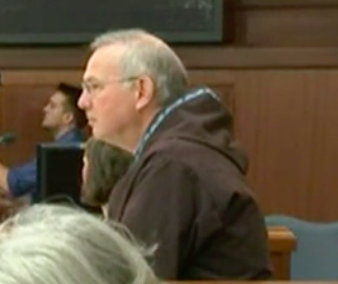DEMOGRAPHIC CHANGES HAVE CONSEQUENCES
By WIN GRUENING
SENIOR CONTRIBUTOR
Recent dissension over sports programs in our two high schools is dominating social media websites.
The issues involved dovetail with the release of a report by Rain Coast Data (RCD), a Juneau-based research firm specializing in Southeast Alaska economic analysis. In that report, RCD owner and director, Meilani Schijvens, detailed recent trends in our local and regional economy.
According to Schijvens, jobs, earnings and population all declined in Southeast Alaska in 2016 and Juneau’s population has decreased by nearly 400 people since 2014.
Perhaps most concerning is the decline in state government jobs. From 2014 to 2017, Alaska lost 720 government jobs, a decrease of 14 percent with three-quarters of those jobs exiting Juneau.
With declining oil revenues and further state economic contraction, we can expect continued downward pressure on municipal finances. As our population, municipal revenues and economy decline disproportionately to our spending, painful choices seem inevitable.
Indeed, we needn’t look back very far to see what happens when we don’t pay attention to demographics.
The construction of Juneau’s new high school in the Mendenhall Valley in 2008 is a classic example.
In 2004 when a second high school was being discussed, questions about enrollment and capacity at Juneau-Douglas High School (JDHS) drove the debate. Underlying that debate was uncertainty surrounding Juneau’s future population.
Proponents of a new high school maintained JDHS was overcrowded at 1,578 students. They relied on projections showing Juneau’s future population growing despite consistent decreases in population growth and birthrate over the previous twenty years.
Opponents of building a new school cited a study projecting an eventual decline in total high school students. It concluded a “bubble” in the school population would pass through JDHS and enrollment would ultimately drop off.
That the demographic trend was clearly headed downward and that new school boosters didn’t separately examine the school age population should have given everyone pause.
The public vote in May 2004 was close but voters rejected construction of a new high school. Newspaper accounts then attributed the vote to objections focused on the school’s design, overall cost, added operational expenses (including support for duplicate sports programs) and diluted academic offerings at two separate schools.
After voting down the $62 million in bonds for a 1,080-student school, five months later in October 2004 Juneau voters approved $54 million in bonds to build a reduced-sized high school with a capacity of 840 students.
Three years later, an additional $17 million was authorized to complete the auditorium and provide turf fields and additional equipment. Concerns about costs of maintaining two high schools with duplicate sports programs were apparently forgotten as was the final $71 million price tag.

FAST FORWARD
Under-utilization of the two schools and the proliferation of so many different sports programs has created controversy as families became burdened with extremely high activity fees charged for sports team participation.
Today, combined enrollment at both high schools is slightly over 1,300 – 15% less than it was in 2004. Due to lower enrollments, state funding for our schools has declined. Yet, both schools offer numerous varsity sports including very expensive football programs which reportedly are having difficulty even attracting enough players.
Discussion about merging both schools or some of their various academic and sports programs began several years ago. Much like the controversy about building a new school in 2004, emotions run high and confusion surrounds the claims and counterclaims made by the parties involved.
Most recently, the school district decided to merge the two high school football teams and their associated cheer teams. Not surprisingly, “merging” team names, mascots and identities has created an uproar.
Much of this could have been avoided. If school officials and city leaders hadn’t selectively ignored the demographic data available in 2004, it’s doubtful we would have built the second high school.
And, unfortunately, a concerted effort to produce the jobs and economic development required to stabilize Juneau’s population hasn’t happened.
Today, we face a similar choice in the proposed $26 million downtown Juneau Arts and Culture Center. Where will the increased number of patrons needed to support a facility of this size come from if our population is shrinking?
A road connecting Juneau to Haines, Skagway, and Whitehorse would be a prudent start. A strategic plan to increase jobs in mining and tourism certainly would help. But predictably, vocal opposition to most proposed economic expansion continues.
Until we recognize that serious economic development is healthy for our community, our shrinking population will be saddled with paying for under-utilized, inadequately funded community facilities. We will also likely see reduced city services and/or increased local taxes.
Paying attention to demographics would have prevented the strife we are experiencing today and it will help us avoid it in the future.
When will we learn?
Win Gruening retired as the senior vice president in charge of business banking for Key Bank in 2012. He was born and raised in Juneau and graduated from the U.S. Air Force Academy in 1970. He is active in community affairs as a 30-plus year member of Juneau Downtown Rotary Club and has been involved in various local and statewide organizations.













